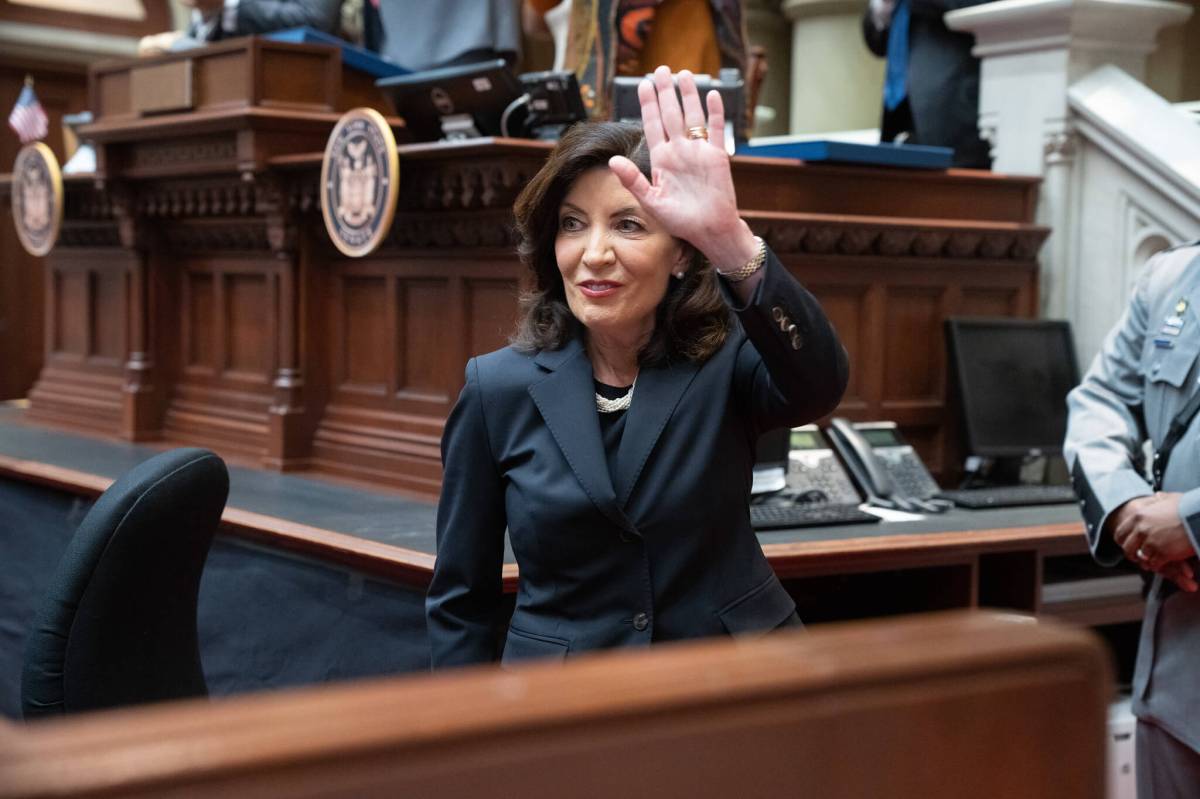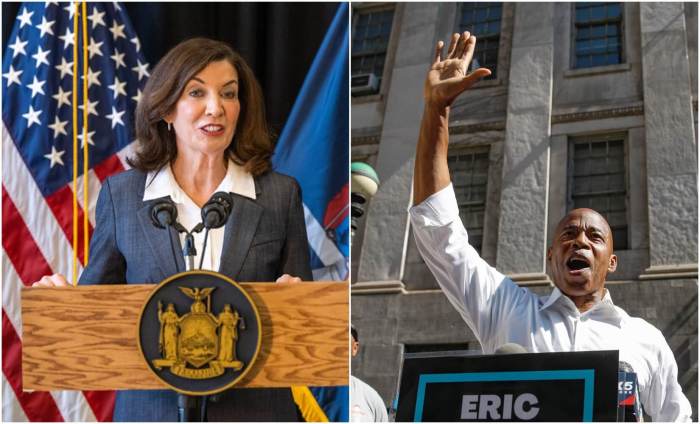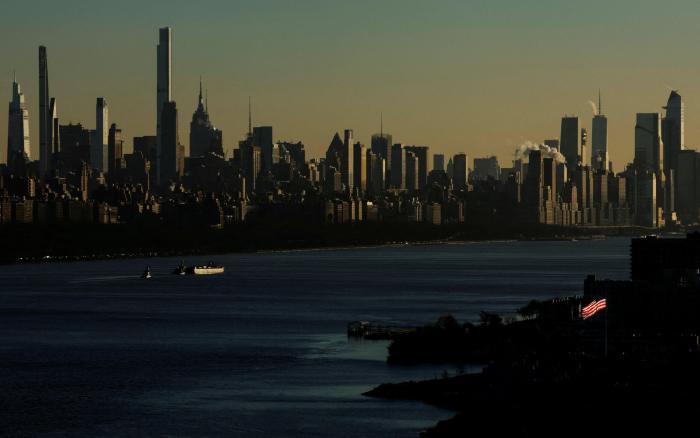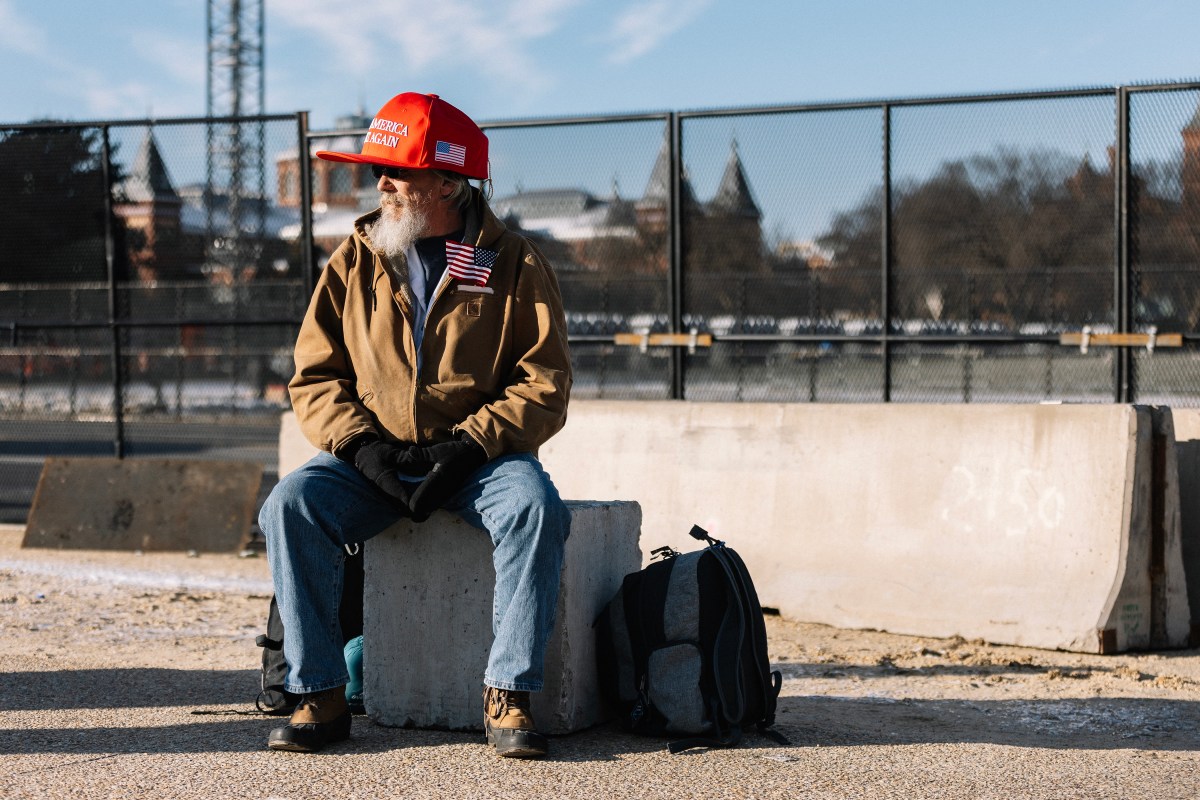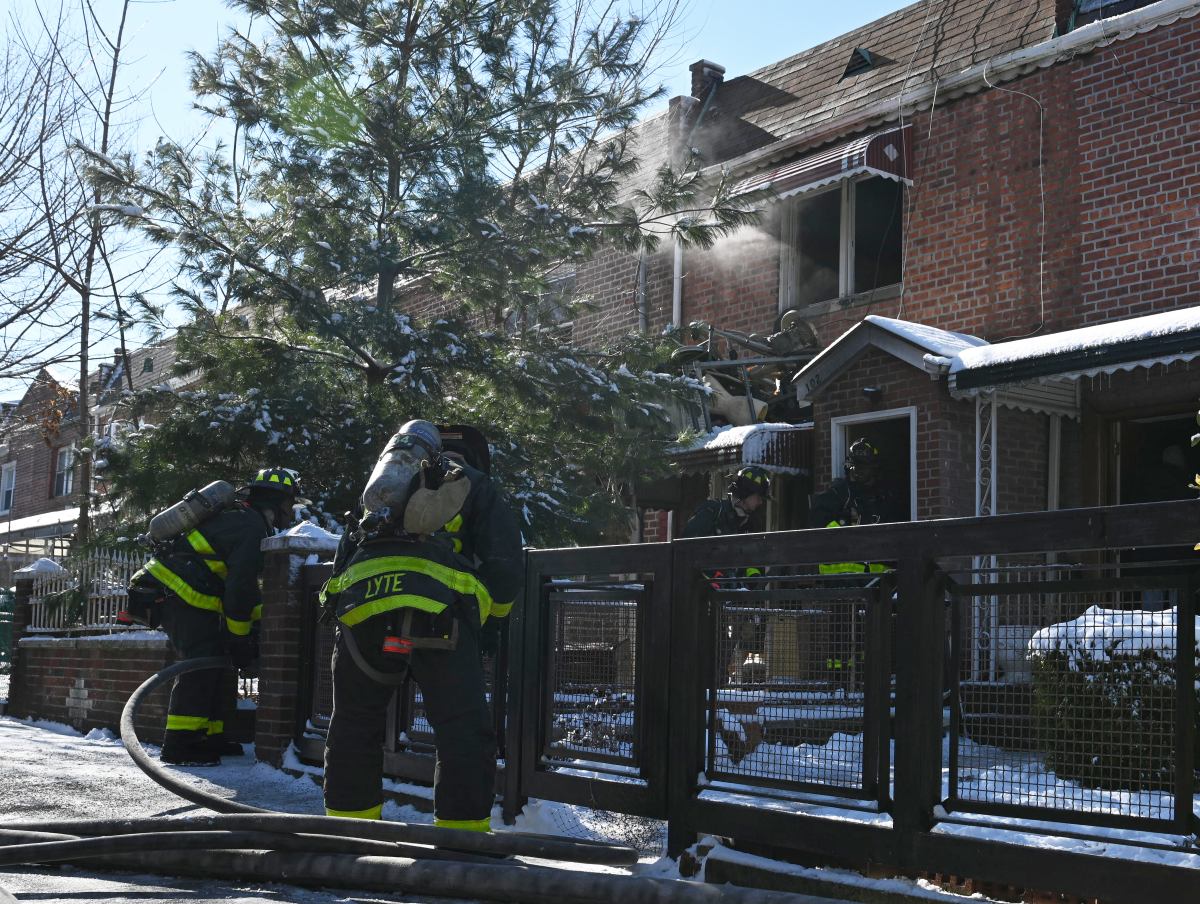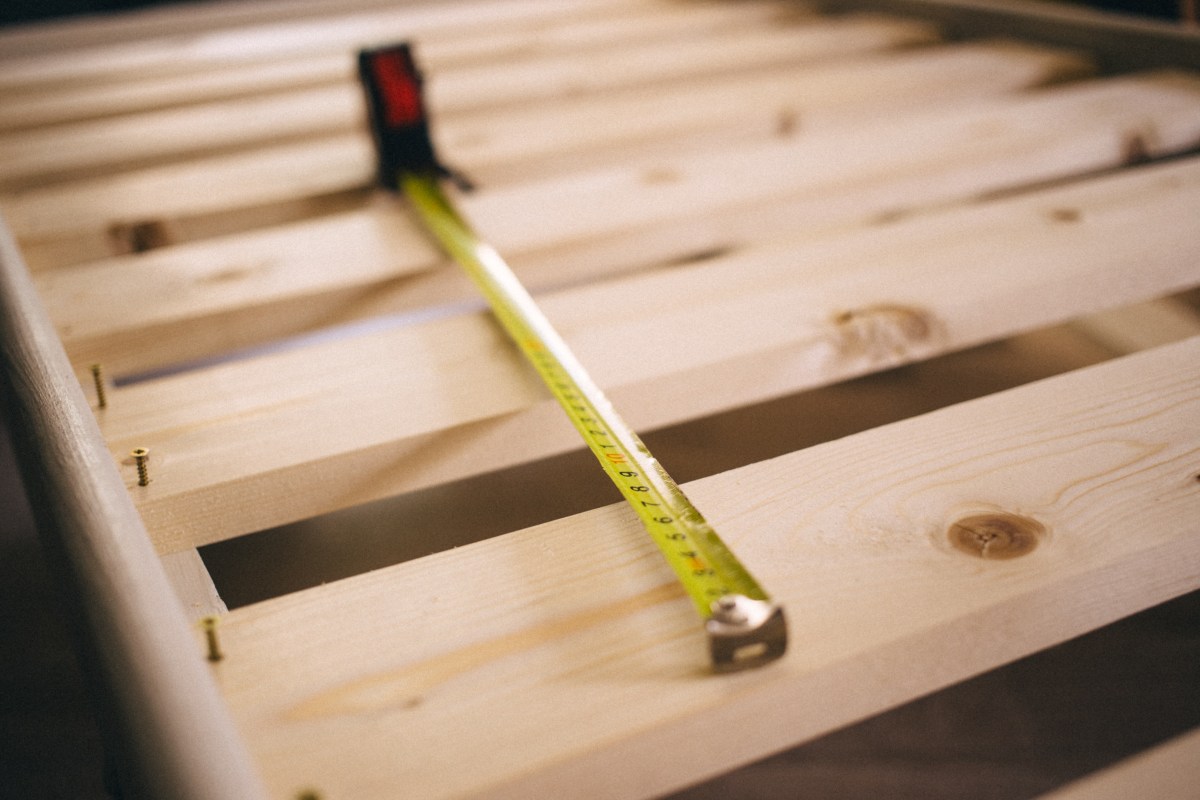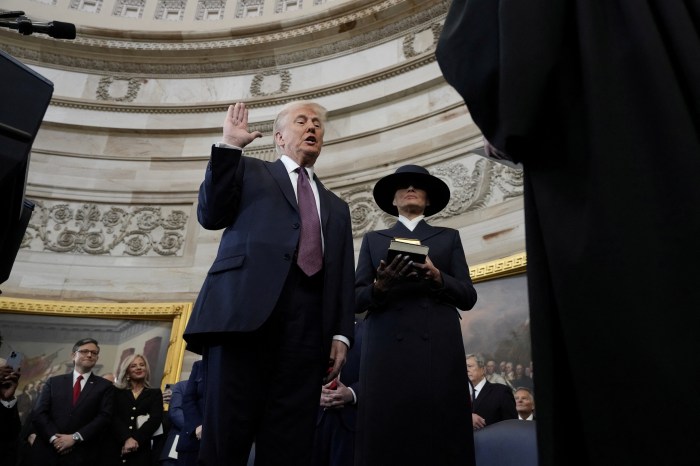Governor Kathy Hochul called for a ban on burning fossil fuels in newly constructed buildings within five years during her State of the State address Tuesday.
Under her program, on-site fossil fuel combustion would be banned in new construction of small buildings by 2025, and in larger buildings by 2028. The sale of new fossil-burning heating equipment would be banned in New York by 2030 for small buildings and 2035 for larger ones, she said.
“I’m proposing a plan to end the sale of any new fossil-fuel-powered heating equipment by 2030,” said the governor in her speech at the State Capitol. “And I’m calling for all new construction to be zero-emission, starting in 2025 for small buildings and 2028 for large buildings. We are taking these actions because climate change remains the greatest threat to our planet, and to our children and grandchildren.”
That’s in addition to a new “Cap-and-Invest” program the governor put forward to lawmakers. Under that proposal, consumption of fossil fuels would be subject to a “cap” that will decline each year, and the governor says corporations will be required to purchase “permits” in order to emit carbon from fossil fuels. Proceeds generated from those purchases would be invested in rebates for consumers facing the high price of greening up their energy consumption.
New York State is statutorily required to reduce greenhouse gas emissions by 40% by 2030 and 85% by 2050 under the auspices of the 2019 Climate Leadership and Community Protection Act; the governor’s proposals were recommended by the state’s Climate Action Council, a panel tasked with figuring out implementation of the sprawling climate law.
Hochul’s call comes on the heels of New York City’s 2021 ban on gas hookups in new buildings. The Big Apple is currently in the process of implementing its own sprawling climate statute Local Law 97, which requires landlords of large buildings to meet tough new energy efficiency standards starting next year and to retrofit their edifices in order to meet those targets.
Environmental groups reacted positively to the proposals, though some pushed further action from the state’s chief executive.
“Burning oil, gas, and other fossil fuels comes with grave consequences for our health and our future, which is why it’s so important that Hochul has committed to zero-emission homes, ending the sale of fossil fuel heating equipment, and is looking out for ratepayers’ pocketbooks,” wrote Richard Schrader of the Natural Resources Defense Council. “It’s clear that Hochul is tackling climate change head-on and standing up to protect our communities from the extreme heat, flooding, and the other dangerous consequences it brings.”
Several climate groups organized as the “Gas Free NY” coalition urged the governor and both houses of the legislature to support legislation requiring the phaseout of gas in new construction by the end of this year. The governor and State Senate supported the measure last year, but it did not win the backing of the State Assembly.
“As the climate crisis accelerates and New Yorkers feel the pain of skyrocketing energy bills, the Assembly and Speaker Heastie must work with the Senate and the Governor to include this life-saving bill in the SFY2023-24 Budget and create a #GasFreeNY,” the coalition said in a statement. “Each new building hooked to gas locks more families into overpaying to heat their homes, while padding the fossil fuel industry’s profit, torching our state, and endangering New Yorkers.”
Pete Sikora, climate organizer at New York Communities for Change, tweeted that while the plan was noble, the health of the planet demanded faster implementation.
“Hochul is proposing to end fossil fuel boiler replacements starting in 2030 statewide,” wrote Sikora. “That’s too slow. It means no cuts in pollution – and no attendant job creation – before 2030. 2030 is the drop-dead date for cuts to be made, not started.”



